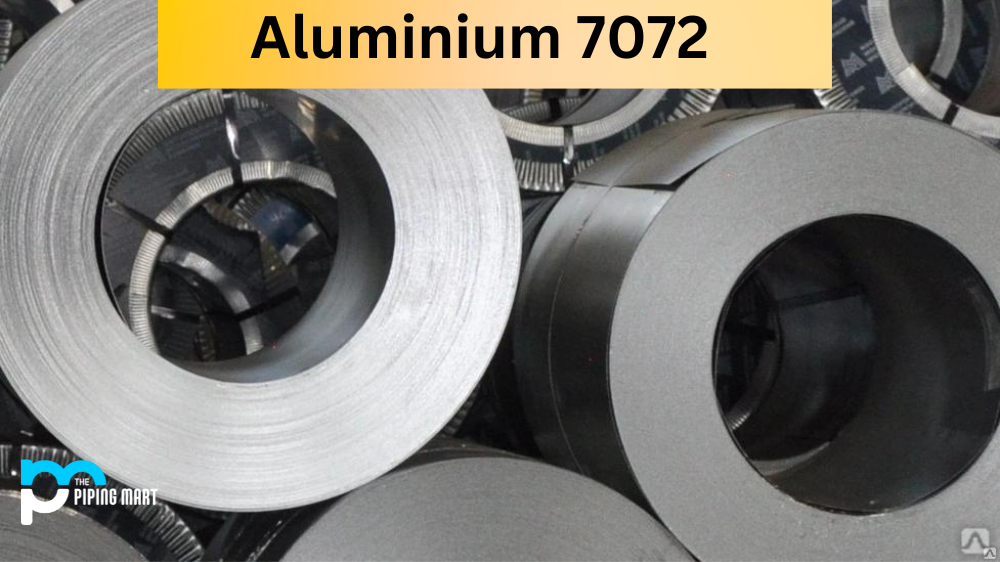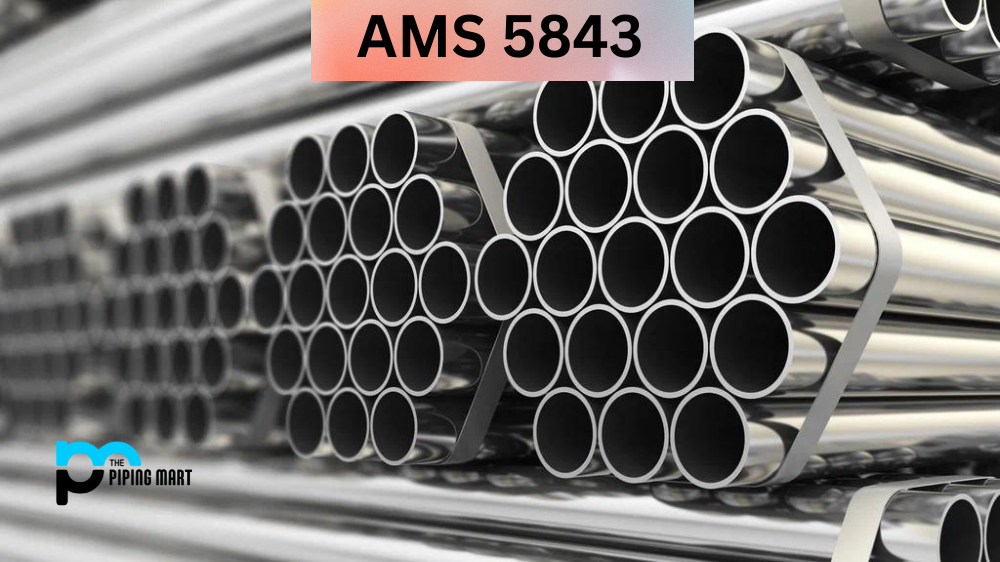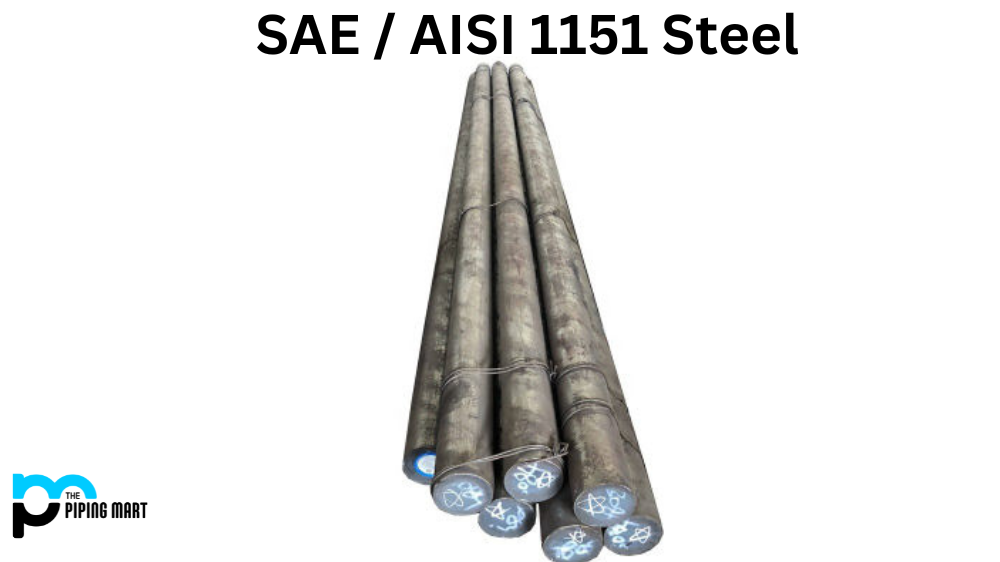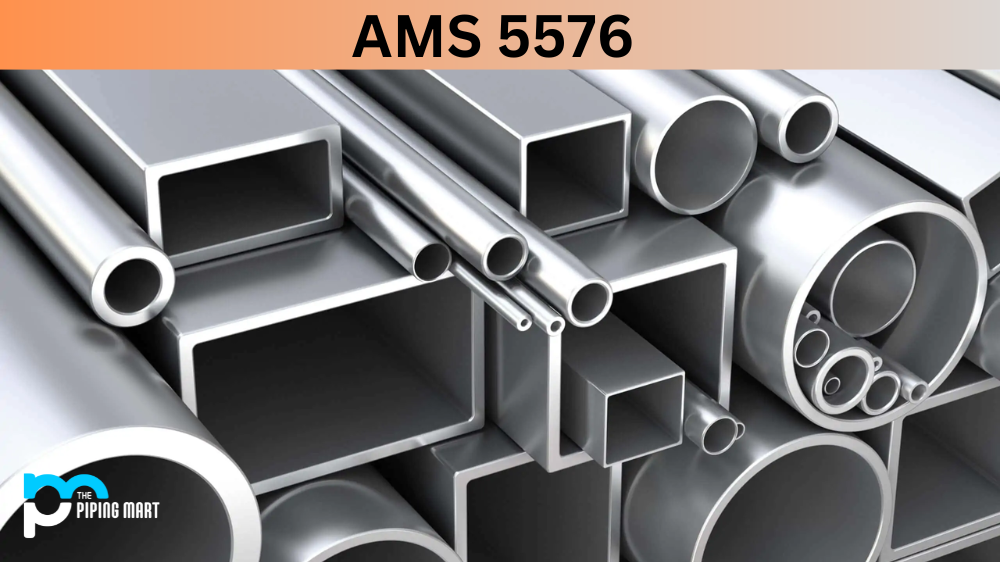Aluminium 7072 is an alloy that has excellent strength, high corrosion resistance, superior heat resistance, and the ability to withstand extreme temperatures. UNS A97072 makes it a popular choice for a variety of applications in the engineering, aerospace, automotive, and metal fabrication industries. Let’s take a closer look at aluminum 7072 and its uses.
7072 Alloy Composition
| Element | Content (%) |
|---|---|
| Aluminium/aluminum, Al | 99 |
| Zinc, Zn | 1 |
7072 Alloy Physical Properties
| Properties | Metric | Imperial |
|---|---|---|
| Density | 2.6-2.8 g/cm3 | 0.0939- 0.101 lb/in3 |
7072 Alloy Mechanical Properties
| Properties | Metric | Imperial |
|---|---|---|
| Shear strength | 62 MPa | 8993 psi |
| Elastic modulus | 70-80 GPa | 10153-11603 ksi |
| Poisson’s ratio | 0.33 | 0.33 |
| Hardness | 28 | 28 |
7072 Alloy Thermal Properties
| Properties | Conditions | ||
|---|---|---|---|
| T (ºC) | Treatment | ||
| Thermal conductivity | 227 W/mK | 25 | – |
7072 Alloy Equivalent
- ASTM B209
- ASTM B221
- ASTM B234
- ASTM B241
- ASTM B313
- ASTM B345
- ASTM B404
- ASTM B547
7072 Alloy Uses
Aluminium 7072 is an alloy that is particularly well-known for its durability and strength while still having the lightweight form of other aluminum alloys. It is used in a vast array of applications, ranging from making sports equipment like baseball bats and golf clubs to being employed in automotive parts such as wheel rims and suspension components. Its toughness makes it an ideal choice for providing structural support due to its power to handle corrosion environments better than many other steel alloys. Aluminium 7072 is also resistant to climate change, a significant advantage for industrial applications which require reliable performance over many years. This level of robustness has made this alloy perfect for use offshore platforms or in any area where wear and tear must be kept to a minimum.
Corrosion Resistance
Aluminium 7072 is highly resistant to various types of corrosion, including intergranular corrosion and stress-corrosion cracking. It is also resistant to crevice corrosion when exposed to acidic or alkaline environments. These properties make aluminium 7072 an ideal choice for applications that require materials which are resistant to rusting or exposure to harsh chemicals.
Heat Resistance
Aluminium 7072 is able to withstand extreme temperatures without losing its mechanical properties or becoming brittle. This makes it suitable for applications such as exhaust systems, turbochargers, and engine components, as it can withstand intense heat without becoming damaged or deforming over time. In addition, aluminium 7072 has superior heat dissipation qualities, which make it perfect for heat-sensitive components like brakes or clutches.
Heat Treatment
Aluminium 7072 can be hardened by undergoing the process of heat treatment. During this process, the material is heated up to approximately 500°C before being cooled down again in oil or water, depending on what type of hardness is required. After the cooling process is complete, the material should have improved wear resistance and better machinability than before treatment.
Machining
aluminium 7072 can be machined easily using standard tools due to its softness and malleability, although care must be taken when working with this material as it tends to form burrs during machining, which can damage parts if not removed properly. When machining aluminium 7072, it’s important to use plenty of lubrication between the tool and material to reduce friction and improve cutting performance while also ensuring that the temperature remains below 250°C during operation to avoid any potential damage caused by overheating.
Welding
Aluminium 7072 can be welded using either gas tungsten arc welding (GTAW) or gas metal arc welding (GMAW). In both cases, a filler rod made from a compatible alloy should be used in order to ensure optimal weld strength while avoiding any problems caused by incompatible alloys reacting during welding operations. It’s also important that sufficient preheating is used before welding in order to prevent cracking due to rapid cooling after welding operations have been completed.
Conclusion:
Aluminium 7072 is a strong yet lightweight alloy that offers excellent corrosion resistance, superior heat resistance, and the ability to withstand extreme temperatures without becoming brittle – making it an ideal choice for applications requiring materials that are highly durable yet still lightweight enough for use in aeronautics or other industries where weight is a crucial factor in design considerations. With its versatile machinability characteristics combined with its ability to be hardened through heat treatment processes makes aluminium 7072 a great option for engineers looking for materials suitable for their project’s needs!

A passionate metal industry expert and blogger. With over 5 years of experience in the field, Palak brings a wealth of knowledge and insight to her writing. Whether discussing the latest trends in the metal industry or sharing tips, she is dedicated to helping others succeed in the metal industry.




